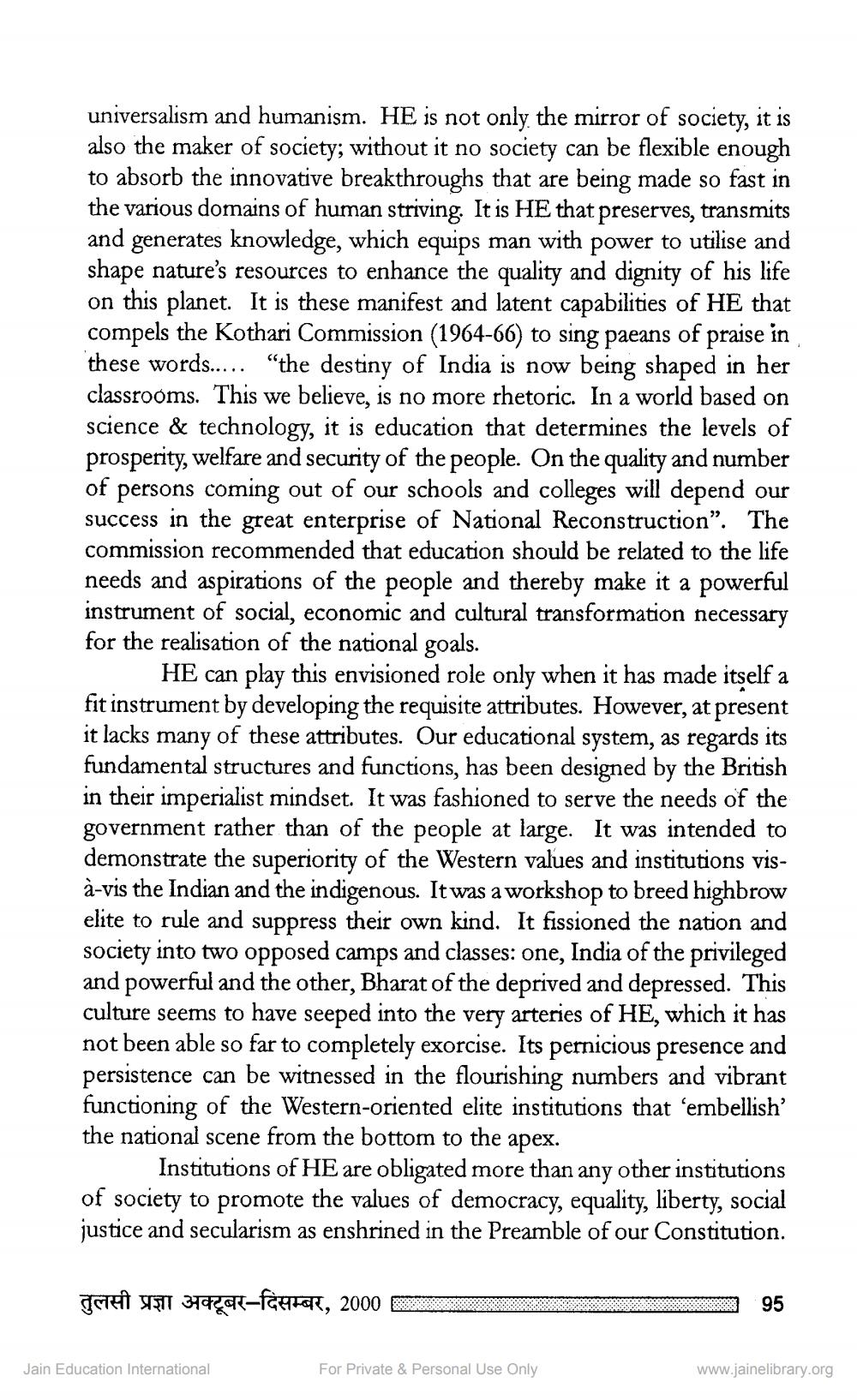________________
universalism and humanism. HE is not only the mirror of society, it is also the maker of society; without it no society can be flexible enough to absorb the innovative breakthroughs that are being made so fast in the various domains of human striving. It is HE that preserves, transmits and generates knowledge, which equips man with power to utilise and shape nature's resources to enhance the quality and dignity of his life on this planet. It is these manifest and latent capabilities of HE that compels the Kothari Commission (1964-66) to sing paeans of praise in these words..... "the destiny of India is now being shaped in her classrooms. This we believe, is no more rhetoric. In a world based on science & technology, it is education that determines the levels of prosperity, welfare and security of the people. On the quality and number of persons coming out of our schools and colleges will depend our success in the great enterprise of National Reconstruction". The commission recommended that education should be related to the life needs and aspirations of the people and thereby make it a powerful instrument of social, economic and cultural transformation necessary for the realisation of the national goals.
HE can play this envisioned role only when it has made itself a fit instrument by developing the requisite attributes. However, at present it lacks many of these attributes. Our educational system, as regards its fundamental structures and functions, has been designed by the British in their imperialist mindset. It was fashioned to serve the needs of the government rather than of the people at large. It was intended to demonstrate the superiority of the Western values and institutions visà-vis the Indian and the indigenous. It was a workshop to breed highbrow elite to rule and suppress their own kind. It fissioned the nation and society into two opposed camps and classes: one, India of the privileged and powerful and the other, Bharat of the deprived and depressed. This culture seems to have seeped into the very arteries of HE, which it has not been able so far to completely exorcise. Its pernicious presence and persistence can be witnessed in the flourishing numbers and vibrant functioning of the Western-oriented elite institutions that 'embellish' the national scene from the bottom to the apex.
Institutions of HE are obligated more than any other institutions of society to promote the values of democracy, equality, liberty, social justice and secularism as enshrined in the Preamble of our Constitution.
तुलसी प्रज्ञा अक्टूबर-दिसम्बर, 2000
Jain Education International
For Private & Personal Use Only
95
www.jainelibrary.org




